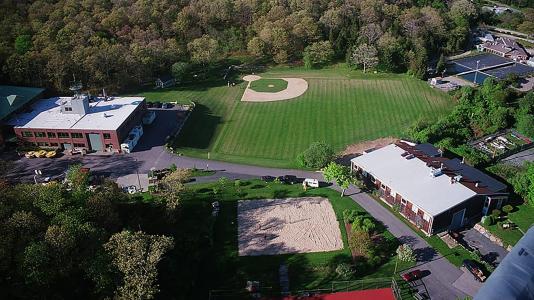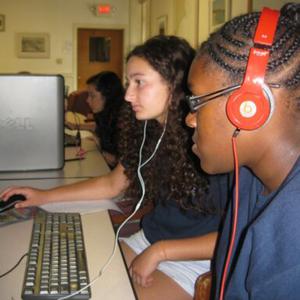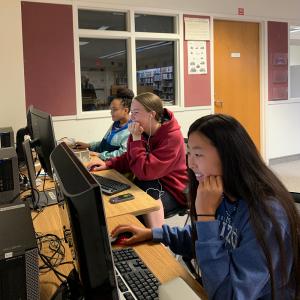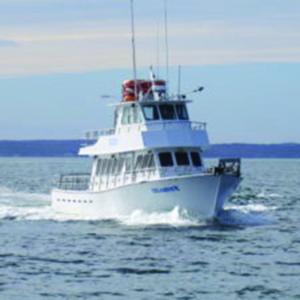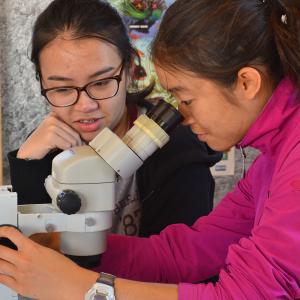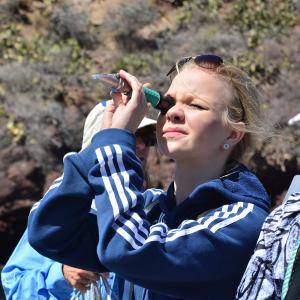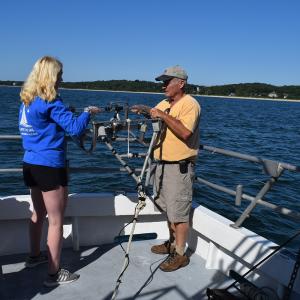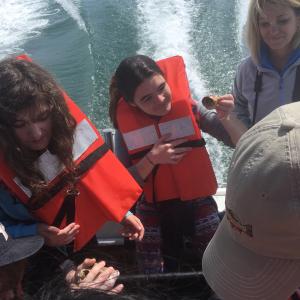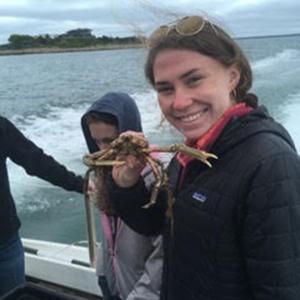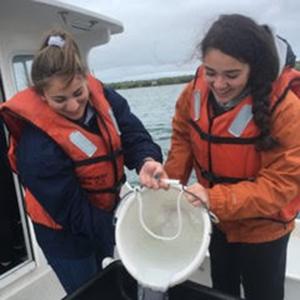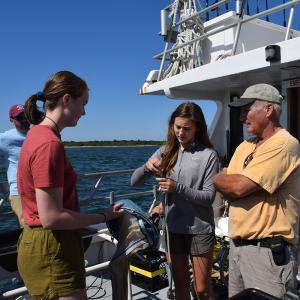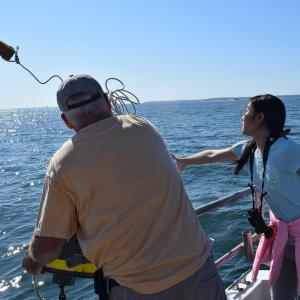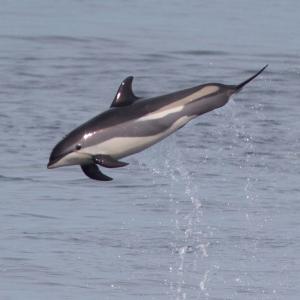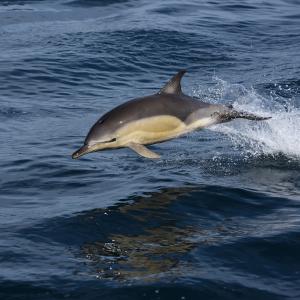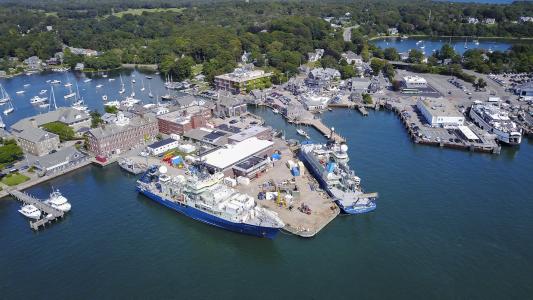.
.
Marine Mammal Bioacoustics and Conservation
Girls in Science Program Expedition Briefing
.
COVID-19 Enhanced Health and Safety Measures
This project has been amended to incorporate several health and safety measures to allow responsible fielding of teams during the COVID-19 pandemic. These measures are referenced in each section in orange text and will remain in place until further notice. Please refer to the COVID Disclosure Form for more details.
Before Fielding
- To reduce possible transmission, we request that you take steps to limit your exposure to SARS-CoV-2 for at least 14 days prior to your expedition or program and while traveling to your expedition or program. This includes:
- limiting your travel and exposure to essential activities;
- practicing physical (social) distancing;
- wearing a mask or face covering when in public or when physical distancing is not possible;
- washing your hands frequently; and
- monitoring your health for symptoms of COVID-19.
- Do not travel to your Earthwatch expedition or program if you have COVID-19 symptoms (cough, shortness of breath or difficulty breathing, fever, chills, muscle pain, sore throat, or new loss of taste or smell), have been in close contact with someone suspected or confirmed as having COVID-19, or you are suspected or confirmed as having COVID-19 in the past 14 days.
- Plan your travel to the project to be as direct as possible, avoiding unnecessary stops, detours, or visits.
- Respond to Earthwatch’s pre-fielding COVID screening questions shortly before travel.
- Become familiar with and abide by the local COVID guidelines for your destination. This may include proof of testing upon arrival, mandatory quarantine, or other requirements.
Daily Activities
- Participants are asked not to approach or speak with unfamiliar people not associated with the project to reduce the risk of disease transmission during the COVID-19 pandemic.
- Participants and project staff will maintain physical distance, wash/sanitize hands frequently, and wear face masks as instructed by project leadership.
- All team members will participate in daily health checks.
- Recreation time will be limited to activities that can accommodate Earthwatch’s distancing and sanitation protocols. Field staff will advise volunteers on public spaces to visit that are not busy during their unstructured time.
Transportation
- All people must wear masks in vehicles at all times including participants, staff, and drivers.
- People will be spaced out as far as possible within the vehicle. This may involve multiple trips or larger vehicles.
- Drives will be limited to shorter routes and lengths of time whenever possible.
- Windows will be rolled down when conditions allow; AC with external airflow will be used when available.
- Many research activities will be done within walking distance of the accommodations in order to cut down on time in vehicles.
Accommodations and Food
- Participants will be assigned single bedrooms within the accommodations.
- Bathrooms will be shared amongst 2-4 people; only one person will be allowed in the bathroom at a time, a staggered bathing schedule will be employed, and fellows will be asked to wipe surfaces down as they leave the bathroom.
- Ample hand soap and cleaning supplies will be provided.
- Common areas and high-touch surfaces will be cleaned daily.
- Team members will be physically distanced at mealtimes, which may require staggered meal schedules. Meals will be eaten outside whenever possible.
Immunizations and Travel Vaccinations
- Participants are required to have completed vaccination against COVID-19 to join this project. Participants will still be required to comply with all COVID-19 health and safety practices including mask use, hygiene, and physical distancing as described in the Project Risks and Precautions section below.
Project Risks and Precautions: DISEASE
- COVID-19 is an infectious coronavirus disease, which has caused a world-wide pandemic since its discovery in late 2019. Although most people who have COVID-19 will experience mild to moderate respiratory illness, COVID-19 can also cause severe illness and even death. Some groups, including older adults and people who have certain underlying medical conditions, are at increased risk of severe illness. The COVID-19 virus spreads from person to person via close contact, primarily through exposure to the respiratory droplets of an infected person.
- Projects and participants approved to field during the COVID-19 pandemic commit to a number of enhanced safety measures described in the COVID Disclosure Form, including physical distancing, wearing face masks, regular hand washing and surface sanitizing, adjusted accommodations and transportation logistics, and daily health checks.
Packing List
Fellows will be provided with:
- Each participant will receive 3 face masks from Earthwatch. If you would like more than 3 masks, please bring enough so that you will be comfortable for the entire length of the project.
- Fellows will be provided with contactless thermometers to be used for the daily temperature checks
Please also bring:
- Personal toiletries—please do not share personal care products with others
The Story
The village of Woods Hole is located in the heart of Cape Cod in Massachusetts. It’s a scenic mashup of recreation and scientific study, and a hot spot for tourists in the summers. From the beautiful beaches with soaring ospreys and seabirds to the salt ponds and marshes to the whales, dolphins, and seals that swim in the ocean waters, the area is bursting with wildlife.
Scientists at the Woods Hole Oceanographic Institution (WHOI) are interested in learning more about the types of cetaceans—marine mammals that include whales, dolphins, and porpoises—that visit the waters offshore. These animals can be hard to observe and monitor, as most of their time is spent underwater. Scientists are using the sounds they make both to find out which animals are in certain areas and also to understand their behavior, and thus potentially mitigate impacts of harmful situations, such as ship collisions or noise.
In order to help the fellows understand how acoustic monitoring can give us insights into real-time events and be used to conserve marine mammals, fellows will help to deploy a SoundTrap digital acoustic recorder off the WHOI dock to record several days worth of real-time data. Then, the data will be compared to local boat traffic, showing the connection between passive acoustic monitoring and real-time events.
Fellows will have the chance to visit various WHOI facilities, explore the current tools and equipment being deployed for acoustic research, build, test, and use their own hydrophone (underwater recording device), analyze dolphin acoustic data, and observe cetaceans on a whale watch to gain insights into scientific research and its implications for conservation.
Research Aims
Fellows will assist in analyzing acoustic data from common bottlenose dolphins recorded in the waters near Sarasota, Florida. This area is home to the best studied cetacean population anywhere in the world, and thus is the ideal place to develop and test methods that can be applied in less well studied areas. We will be using data collected from a network of hydrophones in Sarasota Bay to study the individually distinctive signature whistles of these animals, which function somewhat like human names. These ‘listening stations’ are collecting hundreds to thousands of whistles every day.
Each fellow will get a collection of files, which they will display as spectrograms, or plots of frequency vs. time, using Raven Lite software.They will first classify each clip as a dolphin whistle, manatee, boat, something else, or unknown. Dolphin whistles will then be classified according to their contours, or shapes, into whistle types. These types will likely correspond to the signature whistles of different individual dolphins. Start times of whistles will be noted, and we will examine the timing of whistles to see if they are more commonly produced during the day or at night. We can also look at whether certain dolphins have favorite associates with whom they spend most of their time. This information is not currently known and can help inform future research. This type of basic information about dolphin communication is valuable in protecting the species.
Once we classify these whistle clips, they can also be used by other researchers to train machine learning algorithms to automatically classify different signature whistles. These methods could be used to expand our understanding of dolphin populations in remote or poorly studied areas, to document movement patterns, habitat usage, and changes in these aspects over time. This method has conservation implications in that individual dolphins, as well as populations, can be monitored to look for responses to anthropogenic (human-produced) stressors such as noise from ships or construction. .
Fellows will examine three other sources of recordings using Raven Lite software. First will be those made by a SoundTrap acoustic recorder deployed off the WHOI dock. With the help of researchers, fellows will learn to discern boat traffic, including the regular trips made by the ferry going to and from Martha’s Vineyard. Secondly, they will analyze (weather permitting) cetacean recordings gathered during a whale watch. And lastly, fellows will analyze recordings made with hydrophones they build (see below), which will be deployed at the end of the week. SoundTrap and whale watch recordings will be used to understand how we collect sound data in the field and how we use it to monitor sounds produced by cetacean species as well as other human-produced sources of sound.
Fellows will also construct and deploy their own hydrophones to experience the engineering and design components that go into the technology required to obtain sound data. We will take their hydrophones out into the field and make real-time recordings to then take back into the lab and review.
During the week, fellows will have the opportunity to work alongside researchers and engineers, on land and aboard boats, to identify local wildlife, deploy hydrophones, try out oceanographic sampling techniques, and observe and identify marine mammals in their natural habitat aboard a whale watch.
How You Will Help
Fellows will help use dolphin whistles to determine which animals are present in certain areas and at certain times. With your help, scientists will use bioacoustics to potentially fine-tune a method to determine which whistles are signature whistles in long-term acoustic recordings. As part of this team, you will:
- Classify whistle clips: In the lab, fellows will classify whistle vs. non whistles to improve machine learning algorithms so that these methods could be used to monitor dolphin responses to human disturbances of difficult-to-observe populations around the globe.
- Fellows will use their classification of these sounds to answer questions such as whether dolphins produce more whistles during the day vs. at night. This information is not currently known and can help inform future research. This type of basic information about dolphin communication is valuable in protecting the species.
Life in the Field
The expedition will begin with a program orientation, a site tour, and safety briefing. This program is designed for you to experience different aspects of STEAM in practice. Although you will often be able to work at your own pace or as a team you will enjoy the experience much more if you’re in good physical shape.
DAILY ACTIVITIES
Weather and research needs can lead to changes in the daily schedule. We appreciate your cooperation and understanding.
COVID-19 SAFETY MEASURES
- Participants are asked not to approach or speak with unfamiliar people not associated with the project to reduce the risk of disease transmission during the COVID-19 pandemic.
- Participants and project staff will maintain physical distance, wash/sanitize hands frequently, and wear face masks as instructed by project leadership.
- All team members will participate in daily health checks.
- Recreation time will be limited to activities that can accommodate Earthwatch’s distancing and sanitation protocols. Field staff will advise volunteers on public spaces to visit that are not busy during their unstructured time.
ITINERARY
DAY 1
Arrive between 1:00 and 3:00 p.m.
Campus and project orientation, dinner, getting to know the team
DAYS 2–6
Campus tour, introduction to marine mammal bioacoustics, introduction to mooring operations, deploy acoustic recorder on the WHOI dock, and work on hydrophone construction and data analysis.
Introduction to oceanographic sampling techniques on Zephyr,, whale watch, and kayak trip towing their hydrophone while exploring the role that estuaries and salt marshes play in mitigating climate change . During this time, fellows will interact with a wide range of female role models in the Woods Hole research community through panel discussions, tours, demonstrations and Earthwatch facilitators will lead our Girls in Science curriculum.
DAY 7
Team wrap-up, presentation of your personal journey in STEAM, review of project results, packing, and departure.
DAILY SCHEDULE
- 7:30 a.m.: Breakfast
- 8:30 a.m.: Head out for field or lab work
- 12:00 p.m.: Lunch at accommodations or in the field
- 1:30 p.m.: Continue field work or lab work
- 4:00 p.m.: Return from field or lab
- 4:00 p.m.: Downtime
- 5:30 p.m.: Dinner
- 7:00 p.m.: Lectures, films, and downtime
Woods Hole can be hot and humid in August. Fellows can walk the Cape beaches, observe ospreys and seabirds, or enjoy exploring local salt ponds and salt marshes. They will get to meet graduate students, visiting scientists, and tourists visiting the area (either in person or virtually). There are many different boats to observe and you may even see harbor seals.
We have a lot to pack in during the week! We do our best to include downtime, but some days will be busy, please plan accordingly and talk with your facilitators to make sure you are getting what you need.
Accommodations and Food
Girls in Science fellows and facilitators will stay in cottages on the Sea Education Association (SEA) campus in Falmouth, MA. Life in each cottage revolves around its common/dining area (outside), and kitchen inside where fellows will take turns helping prepare meals, share cleaning duties and live in community with one another. The Earthwatch team will be the only group at the accommodations while you are there.
SLEEPING
Beds are all single beds in their own room. No mosquito netting is needed. Bathrooms with a flush toilet and shower are located on each floor. Fellows will be required to bring their own twin-sized sheets and blankets or a sleeping bag.
* Earthwatch will honor each person’s assertion of gender identity, respectfully and without judgment. For both teen and adult teams, where logistics dictate single-sex accommodations or other facilities, participant placements will be made in accordance with the gender identity the participant specified on their Earthwatch Participant form and/or preferences indicated in discussions with Earthwatch.
COVID-19 SAFETY MEASURES
- Participants will be assigned single bedrooms within the accommodations. Ample hand soap and cleaning supplies will be provided. Common areas and high-touch surfaces will be cleaned daily.
BATHROOMS
There are two shared bathrooms (toilet, sink and shower) for the shared bedrooms. Hot water is available at this location, but the climate is generally very warm. Only one fellow will be allowed to use each bathroom at a time.
COVID-19 SAFETY MEASURES
- Bathrooms will be shared amongst 2-4 people; only one person will be allowed in the bathroom at a time, a staggered bathing schedule will be employed, and fellows will be asked to wipe surfaces down as they leave the bathroom.
ELECTRICITY
Electricity is available at the SEA campus cottages. Use of electronic devices may be restricted to specific times. Please reach out to your program coordinator at Earthwatch if you have any specific electricity questions or needs.
PERSONAL COMMUNICATIONS
Wireless Internet access is not readily available on campus. Computer lab space will be available to work on the week’s activities but will not be available for personal use.
Staff can be reached via telephone, cell phone, and email for both emergencies and casual communication.
Please note: Earthwatch encourages volunteers to minimize outgoing calls and immerse themselves in the experience; likewise, family and friends should restrict calls to urgent messages only. Emergency communications will be prioritized.
FACILITIES AND AMENITIES
There are labs, classroom space, and dormitory-style living accommodations to support researchers and students. These may also be in use by other groups when your Earthwatch team is present.
There are limited shopping opportunities nearby. If there is something that you like to have every day, we recommend that you bring it with you.
Smoking or vaping is not permitted at any time. Please review the participant code of conduct for additional information.
FOOD AND WATER
Food and water will be provided for the week. Fellows, with the guidance and support of field staff, will help prepare meals for the team.
Limited personal refrigerator space is available, unless needed for special circumstances, e.g. medicine storage.
COVID-19 SAFETY MEASURES
- Team members will be physically distanced at mealtimes, which may require staggered meal schedules. Meals will be eaten outside whenever possible.
TYPICAL MEALS
The following are examples of foods you may find in the field. Variety depends on availability. We appreciate your flexibility.
- Breakfast: Cereal, bagels, oatmeal, fruit, juice
- Lunch: Sandwich bag lunch with peanut butter & jelly, or lunch meat and cheese options, cookies, granola bars, chips, fruit
- Dinner: Tacos, pasta and tomato sauce, chili, pizza, chicken, vegetables, salads
- Beverages: Juice, water, tea
SPECIAL DIETARY REQUIREMENTS
Please alert Earthwatch to any special dietary requirements (e.g., diabetes, lactose intolerance, nut or other food allergies, vegetarian or vegan diets) as soon as possible, and note them in the space provided on your participant forms.
Project Conditions
GENERAL CONDITIONS
For weather and region-specific information, please visit Wunderground.com and search for your project location.
Essential Eligibility Requirements
All participants must be able to:
- Follow verbal and/or visual instructions independently or with the assistance of a companion.
- Take an active role in one’s own safety by recognizing and avoiding hazards if and when they arise (including, but not limited to, those described in Earthwatch materials and safety briefings). Comply with project staff instructions and recommended safety measures at all times.
- Be able to effectively communicate to the staff if experiencing distress or need assistance.
- Be able to get along with a variety of people from different backgrounds, often in close proximity, for the duration of the team.
- Enjoy working as a team, and function cohesively within a group.
- Be comfortable around boats
- Lift and carry kayaks to the water and back up for storage
- Enjoy being outdoors
- Sit and ride, with seat belt fastened, in project vehicles.
- Carry personal daily supplies, such as lunch, water, and a camera.
- Enjoy being outdoors all day in all types of weather.
Health and Safety
EMERGENCIES IN THE FIELD
Earthwatch has a 24-hour, 7-day-a-week emergency hotline number. Someone is always on call to respond to messages that come into our live answering service.
IMMUNIZATIONS & TRAVEL VACCINATIONS
Please be sure your routine immunizations are up-to-date (for example: diphtheria, pertussis, tetanus, polio, measles, mumps, rubella and varicella) and you have the appropriate vaccinations for your travel destination. Medical decisions are the responsibility of each volunteer and their doctor. Visit the Center for Disease Control and Prevention or the World Health Organization for guidance on immunizations.
Participants are required to have completed vaccination against COVID-19. Participants will still be required to comply with all COVID-19 health and safety practices including mask use, hygiene, and physical distancing as described in the Project Risks and Precautions section below.
Project Risks and Precautions
Transportation
Traffic accidents and injuries are always a hazard of road transport and boat transport. Vans will abide by posted speed limits. Participants will not drive; only staff will operate vehicles and boats. You must always wear a seatbelt in a motor vehicle. You will be given a safety briefing before the boat departs and shown where life jackets and life rafts are located.
COVID-19 SAFETY MEASURES
- All people must wear masks in vehicles at all times including participants, staff, and drivers.
- People will be spaced out as far as possible within the vehicle. This may involve multiple trips or larger vehicles.
- Drives will be limited to shorter routes and lengths of time whenever possible.
- Windows will be rolled down when conditions allow; AC with external airflow will be used when available.
- Many research activities will be done within walking distance of the accommodations in order to cut down on time in vehicles.
Hiking and Walking
You may be walking along a rocky coastline or on boat ramps, which are slippery when wet. Some areas are very well protected from the elements, while others are exposed. Participants are instructed to wear sturdy shoes.
Kayaking
You may have the opportunity to use a kayak to explore the coast as a part of a guided tour. You will be required to wear a personal flotation device (life jacket) at all times when using the kayaks. You will be assessed for level of comfort with water. If you are not comfortable or deemed comfortable by the facilitators and research staff then a separate on-land activity will be provided.
Insects and Plants
Poison Ivy, mosquitoes, flies, yellow jackets, wasps, ticks and spiders are present, and repellent along with long-sleeved shirts and pants can help protect from rashes, stings and bites. Ants can be very invasive, so keep your rooms clear of any food or drink, wrappers, wet towels, etc. All dangerous creatures will be discussed during the training period. Please alert Earthwatch of any allergies and medications associated with insects. Please see the CDC (cdc.gov) or WHO (who.int) websites for more information. Diseases present in this region of the US include, but are not limited to, Lyme disease and West Nile Fever.
Local Wildlife
You might come into close proximity with local wildlife. This could include snakes, raccoons, mice, deer, foxes, squirrels, coyotes, and rabbits. As a general rule, please keep your distance and be aware of your surroundings at all times. Please do not attempt to feed any of the wildlife.
Climate/Weather
Dehydration and sunburn are two major risks while in the field. You’ll be briefed on proper clothing, sunscreen use, and fluid intake. Project staff will monitor participants for symptoms of exposure or dehydration. Take particular care when working during the hottest periods of the day. Wet and windy weather is also a possibility while on the ocean.
Project Tasks/Equipment
Hands should always be washed after being in the field, especially before eating. Participants are encouraged to take regular breaks and to avoid over-exerting themselves. Teamwork and attention to proper technique will keep you from getting worn out or injured. Inform a staff member immediately if you are feeling tired or ill. Participants might be asked to carry heavy items. It is important to communicate physical limitations and to take breaks while carrying items.
Personal Security
Crime in Woods Hole is low; however, do not leave valuables unattended in public areas.
Distance from Medical Care
Medical and rescue assistance along the coastline is abundant. Falmouth Hospital and Emergency Room is about a 5-minute drive from the accommodations. Both the local police and fire stations are within 3 miles and the closest decompression chamber is located at Bourne Health Center, which is about a 21 minute drive by car from the accommodations. The Coast Guard also has a station located in Woods Hole, MA.
COVID-19 DISEASE RISKS
COVID-19 is an infectious coronavirus disease, which has caused a worldwide pandemic since its discovery in late 2019. Although most people who have COVID-19 will experience mild to moderate respiratory illness, COVID-19 can also cause severe illness and even death. Some groups, including older adults and people who have certain underlying medical conditions, are at increased risk of severe illness. The COVID-19 virus spreads from person to person via close contact, primarily through exposure to the respiratory droplets of an infected person.
Projects and participants approved to field during the COVID-19 pandemic commit to a number of enhanced safety measures described in the COVID Disclosure Form, including physical distancing, wearing face masks, regular hand washing and surface sanitizing, adjusted accommodations and transportation logistics, and daily health checks.
Travel Planning
RENDEZVOUS LOCATION
Sea Education Association (SEA) Campus or South Station Boston
* Additional information will be provided by Earthwatch to meet your team.
COUNTRY AND PROJECT ENTRY REQUIREMENTS
You are responsible for reviewing and abiding by the local COVID guidelines and regulations for your destination. This may include proof of testing upon arrival, mandatory quarantine, or other requirements. For information regarding Massachusetts, please visit: mass.gov/info-details/covid-19-updates-and-information.
Resources
ARTICLES
- Sayigh, L. S. and V. Janik. 2018. Individual Signatures in Animal Groups: Cetaceans. In: Encyclopedia of Animal Behavior, volume 2, ed. J. Choe. Elsevier.
- Sayigh, L. and V. Janik. 2017. Cetacean Communication. In: Deep Thinkers: Inside the Minds of Whales, Dolphins and Porpoises. ed. J. Mann. University of Chicago Press: Chicago, pp. 66-91
- Sayigh, L. and V. Janik. 2017. Signature whistles. In: Encyclopedia of marine mammals, 3rd edition. ed. B. Wursig, J. Thewissen, and K. Kovacs. Academic Press: San Diego, pp. 854-856.
- Janik, V. and L. Sayigh. 2013. Communication in bottlenose dolphins: 50 years of signature whistle research. Special Issue “Sensory Biology of Aquatic Mammals” for the Journal of Comparative Physiology A.
- Janik, V. M., S. L. King, L. S. Sayigh, and R. S. Wells. 2013. Identifying signature whistles from recordings of groups of unrestrained bottlenose dolphins (Tursiops truncatus). Marine Mammal Science, 29:109-122.
BOOKS
- Mann, J. ed., 2018. Deep Thinkers: Inside the Minds of Whales, Dolphins, and Porpoises. University of Chicago Press
- Massachusetts Wildlife Viewing Guide (Wildlife Viewing Guides Series), 1996
- Whales, Dolphins, and Porpoises: A Natural History and Species Guide 1st Edition by Annalisa Berta (Editor), 2015
.
.
.
Marine Mammal Bioacoustics and Conservation Gallery
Sign up for the Earthwatch Newsletter
Be the first to know about new expeditions, stories from the field, and exciting Earthwatch news.
.
.

